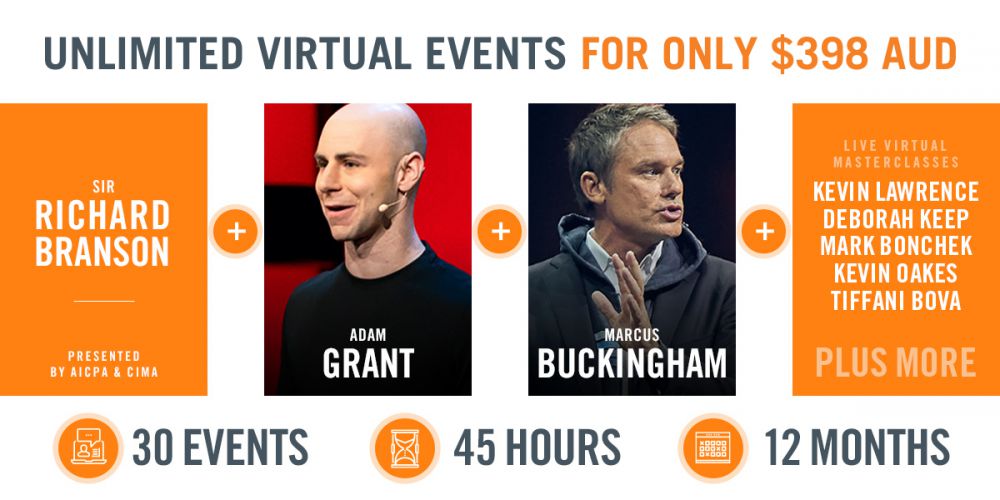Great Ideas: Stephen Schwarzman on thinking about ambition and risk

In What It Takes, Stephen Schwarzman offers lessons on thinking about ambition and scale, risk and opportunities, and achieving success through the relentless pursuit of excellence.
Speaking to The Growth Faculty, he says it’s “as easy to do something big as it is to do something small, so reach for a fantasy worthy of your pursuit.”
And, when Blackstone’s CEO and co-founder Stephen Schwarzman thinks big, he thinks really, really big.
“I thought we should raise a billion dollars for our first fund, which would make it by far the biggest first-time fund every launched. Pete thought I was dreaming.” – Stephen Schwarzman, What It Takes.
When young, as student council president, he convinced the pop group Little Anthony and the Imperials (“Tears on My Pillow”) to perform at his high school.
Then, as an associate at one of the top banks at the time, Lehman Brothers, he landed a deal worth $488 million - the second biggest merger and acquisition deal globally that year (1978).
And in 1987, he and business partner Pete Peterson raised $850 million for Blackstone’s first fund.
Today, with more than $571 billion in assets under management, Blackstone is one of the world’s leading investment firms and its CEO and co-founder Stephen Schwarzman is one of the most successful people on Wall Street.
But, it was no easy ride.
“It was so gruelling that I have never understood the idea of people wanting to be ‘serial entrepreneurs.’ Doing it once is hard enough,” he says.
In his book What It Takes, Schwarzman tells entrepreneurs to consider 3 basic tests before starting a business:
- Your idea must be big enough to justify devoting your life to it. Make sure it has the potential to be huge.
- It should be unique. When people see what you are offering, they should say to themselves, “My gosh, I need this. I’ve been waiting for this. This really appeals to me.” Without that “aha!” you are wasting your time.
- Your timing must be right. The world doesn’t like pioneers, so if you are too early, your risk of failure is high. The market you are targeting should be lifting off with enough momentum to help make you successful.
In our interview, he also recommended:
- When you're managing people, you can't treat people like they're deals. If you're working with them and you offend them, it affects your relationship. It affects their enthusiasm, their loyalty, their ability to go that extra mile.
- Always hire 10s. It's worth paying whatever it takes, pretty close to it, to attract somebody who's one of the top people in the field, because they have that special something.
- As it works out 10s hire 9s and 10s; 9s hire 9s and 8s; 8s hire 7s and 6s.
- So, if you put an 8 in a critical position, and they're hiring 7s and 6s (can barely do what they're supposed to)... you will not have a prosperous organisation.
And, his advice on how to be really successful:
- Be in a field where you love it. People who love what they do tend to be much more successful than smart people who are just analysing something.
- Think about what somebody else's got on their mind, what is that customer thinking or that potential customer, what's on their mind? What are they experiencing? How can you help them?
- Make sure that field [you are] going into has lots and lots of growth.
- Team up with somebody who really knows a bunch that [you don't] know.
- Have a vision that could attract other people.
- Find the best part in your industry or area....then...really go for it
Stephen Schwarzman's GREAT EIGHT, 8 getting to know you questions:
What’s a book that you would recommend? The Accidental President: Harry S. Truman and the Four Months That Changed the World by A.J. Baime
If you weren't doing the job that you're doing now, what would you like to be doing instead? Well, I don't know if there is a job that fits. I enjoy crises and you don't sign up to be "a crisis person."
You've met the Pope, Prime Ministers and Presidents. What do you think are the key qualities that make the most impressive leaders? Well, most of them have a pretty high egos, it goes without saying that that's part of the package. The people who are really good are curious, and have an ideology that is flexible enough so they actually can deal with reality as opposed to taking reality and mashing it into some odd world view. [And they] can deal well with people.
What do you think has been your lowest moment and how did you recover from that? There were so many. There were so many low moments. When we were starting our business and everybody was turning us down. And I remember being completely alone, almost nobody to talk to, everybody was away. I walked down 20 blocks looking... I didn't have much money because we weren't making any money yet. We didn't have any revenue. And I ended up 20 blocks away and I walked up to the second floor of a Japanese restaurant and I just started getting... It was very hot and I just started getting dizzy. And I was thinking, "How did I sink into this?" Being the only person in the dead of the summer in Manhattan working on some little insignificant thing for personal survival. It would have been so easy for me to do other things. And it was the dizziness and I said, "Geez, I'm going to pass out." And I sort of shook myself out of it. And there are so many moments that are low. When you start something, the world isn't waiting for you.
What do you think has been the key driver of your success? It's a desire to create, it's the ability to see new things that other people don't see or see them in a different way, it's the desire to win.
What opportunities do you see in the sustainability space for this decade? At Blackstone we're starting a whole separate fund for that. When we look at a business, we're always evaluating what can be brought up to standard from a sustainability point of view. I mean, we've saved about 15% of our electricity usage in our companies. We're very big in solar power and we have the largest solar array in New York City for example on our buildings. And we're finding that this is not only good for the environment but it's good for business.
What's something that frustrates you about business leaders today? Life has become a little a bit too politically correct and it doesn't just extend to the business community, sometimes people can't say what they really mean. If you utter one word you shouldn't, you're drummed out of polite society. The standard that people have had to adapt to, in terms of what I would call free speech, just seems unreasonable to me. And, in fact, what it does is it gets in the way of communicating what you really think, and then people can't express themselves.
What's your most important message for leaders? People are watching you and listening to you, and when you say something, they amplify it more than you ever dreamed. Be careful with every word you use.
Want to learn more from Stephen Schwarzman? Members can access the complete interview here in video or podcast.
If you'd like to increase your professional development why not consider becoming a member of The Growth Faculty? One membership, unlimited access to 30 live virtual Time For Transformation masterclasses and the best live virtual events - PLUS year-round leadership content On Demand with videos, podcasts and book summaries. Join a community of knowledge seekers who are inspired by the best. Access $4350+ value for just $398 AUD. See who's up next.


 Australia
Australia
 European Union
European Union
 New Zealand
New Zealand
 United Kingdom
United Kingdom
 United States
United States
 Singapore
Singapore

